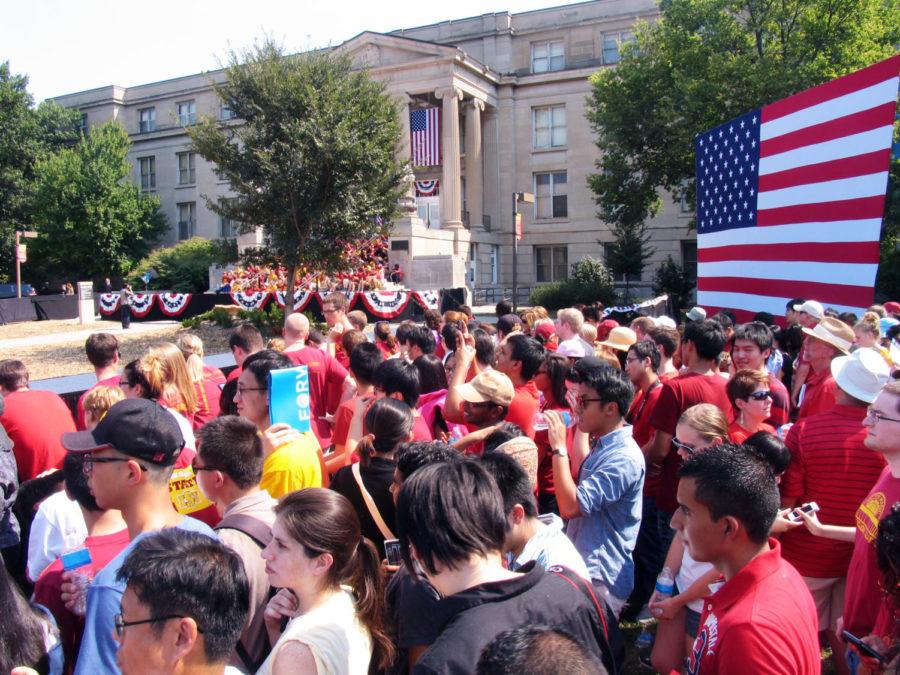Brown: People are more than their political parties
Thousands gather in front of Curtiss Hall to hear President Barack Obama speak Tuesday, Aug. 28, on Central Campus.
October 25, 2012
In the next few weeks, those of us who are citizens of the United States of America are going to have a wonderful opportunity. We are going to be able to directly influence the running of our country, both on a national and local scale, with our votes.
For much of the population, voting will be the beginning and end of their direct political activity for the year. Some may become involved in campaigns before the next election, others may start or join petition groups, and still more citizens may contact an elected official with comments or concerns. Unfortunately, these practices, and others like them, are simply not something that every citizen has the time or energy for.
It stands to reason, then, that each voting citizen would “do their homework” and take time before Election Day to become informed about the candidates running in each election that they can vote for. After all, this will be their one time to influence their government for the following election cycle. It would make sense for them to make the most of it.
Isn’t that a little much to ask though? Can average, everyday Americans really be expected to think about the people who are going to run the day-to-day workings of their government for more than a few minutes here and there?
Luckily, such a question need never really be asked. All you have to do is sign up for a political party and voila! Candidates that you support for each election will be labeled right there on the ballot. In fourteen states, including our very own Iowa, voters can even check a straight party voting box that allows them to get in and get out quick, making their civic responsibility consume even less time!
Voters do not even have to look at the names of the candidates they are choosing to represent them, because they can trust that the political party they subscribe to has already chosen the best candidate.
In all seriousness, there is a glimmer of wisdom behind that idea. Gathering together a multitude of people who share many common views, and having them decide which proposed candidate would be best in public office is exactly what American politics should be about. Such a method allows every person to bring forward their unique views, and see how they work out with everyone elses’.
That is the beauty of a political party. It can act as a screening room to bring forward the best political candidate from a group whose members identify as having similar views on how best to govern.
When a political party becomes an identity within itself, however, its purposes become perverted. Instead of acting as a sphere in which individuals can refine their ideas and come to a consensus on candidates, parties act as a subscription, putting forward a set of dots to be connected like in a child’s coloring book.
The presence of a straight party voting box shows that this mentality has serious effects in our country. Our own ballots take for granted the idea that citizens do not see each of the candidates as individuals, who will make decisions and choices based upon their unique view of the world. They are merely a Republican or a Democrat.
The oft-asked question, “Are you Republican or Democrat?” proves to anyone who has heard it — or asked it — that political parties are indeed an identity in and of themselves. It is a generalization that denotes a serious underestimation of the American citizen. Each voter can be more than “a Republican” or “a Democrat.”
The capability to become more than just a vote for or against a certain party is inherent in every citizen. The public space that could be created by political parties can be instead created on a smaller scale by anyone. Simply talking and listening to a small group or even a single person about political candidates is enough.
That discourse may require a little more work to learn what makes different candidates truly different, but ultimately it will lead to a government that is both more accountable and a better representation of its constituency.







